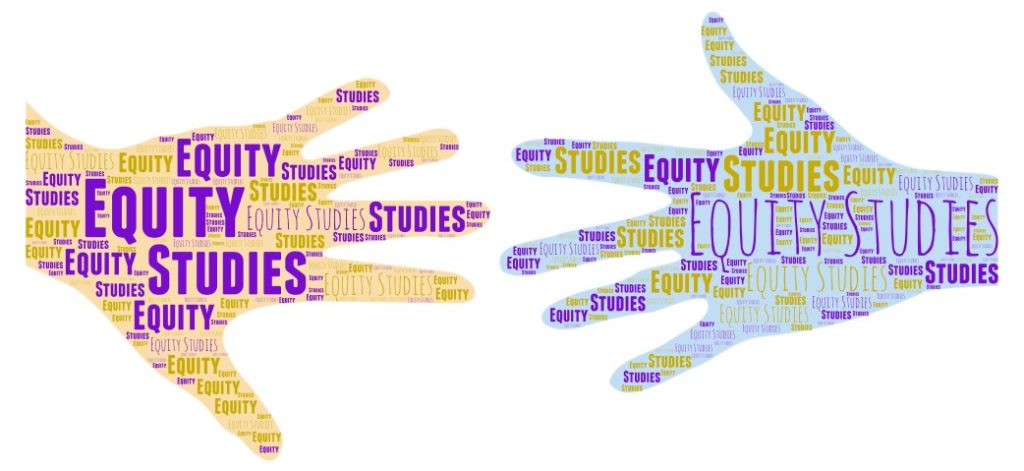
By Lochlan Sheridan
Staff Writer
The decision to add an Equity Studies major was announced by the Saint Michaels Board of Trustees on Oct. 22. This announcement comes as the first semester winds down and students begin to prepare for finals and search the spring catalog of available classes. While the Equity Studies (EQ) program will not be implemented until the 2022-2023 academic year, interested students can take spring semester courses focused on equity, race, and disability that will set them up for the major’s future requirements.
Katherine Kirby, philosophy professor and director of Global Studies, worked with a group of 10 other faculty members to develop the Equity Studies proposal during the 2021 spring semester.
“We recognized a need–and a desire on part of the students– for a course of study on race and additional curricular opportunities on disability,” Kirby said in an email. This decision to add the new area of study comes to St. Michael’s at a time when racial discrimination and social injustice are talked about at high magnitudes throughout the U.S.
Vicky Castillo, ’20 assistant director of MOVE and member of the Civil Rights Alliance, also noted a need for the EQ major and how it can be beneficial to prospective students. “The knowledge and skills that would come with completing an Equity Studies major would benefit any area of work that someone could pursue, without a shadow of a doubt.” Castillo said in an email.
In Vermont specifically, racial inequality and the marginalization of certain people have become growing problems that affect minority groups throughout the state. Because of the lasting effects of the COVID-19 pandemic, minorities are still struggling to find decent-paying jobs and affordable housing. The fight for equality and racial justice is being pushed by Sen. Kesha Ram, state representative for Vermont’s Chittenden County.
“It’s valuable to be versatile in your understanding of other communities, cultures and lived experiences,” Ram said. “Moving into a space where you’re really understanding and celebrating differences is critical for the job market and setting you up with a lifetime of enrichment and happiness.”
Ram also explained the significance of critical race theory and why she believes it is an important concept within the EQ major curriculum. “We should be trying to create debate and the spirit that everyone can talk about different thoughts and ideas without it getting personal,” Ram said.
Critical race theory is a highly debated topic, focused on the idea that racism is not only developed from personal bias or prejudice, but also through the legal systems and public policies that have shaped U.S. society. While some opponents feel that the theory is aimed to achieve racial equity through the discrimination of white individuals who have been the majority throughout the history of the United States, others such as Ram, believe that critical race theory is an essential concept for all college level students to understand and acknowledge.
Aspiring students interested in the EQ major will have the opportunity to become more diverse in their understanding of different cultures and communities they don’t personally associate with. Through a series of electives and core classes, the EQ major provides an inside look into the disparities that many minorities face throughout the U.S.
Peter Vantine, a professor of classical and modern language at St. Michaels, was another individual who worked with the group of faculty members to propose a new EQ major on campus. “The extremely wide variety of classes that will be a part of the major from across numerous departments (about 15, I think) will each bring different approaches, concepts, theories, and practices to bear on these questions,” saint Vantine in an email
While new classes related to race and disability are still being created for the EQ major, professors have a strong understanding of what the curriculum looks like for the up and coming program. “Students will take courses that explore how our society creates and perpetuates domination, oppression, marginalization and inequity in regard to race and ethnicity, disability, gender, sexuality and class,” Kirby said in an email.
Required courses for the major will fall into the following categories: Seeing & Transforming the Systems & Structures of Society; Seeing & Transforming the Self; Competencies & Skills; Equity-themed Electives and Integrations. The major will also give students the option of concentrating in a specific track such as Race & Ethnicity, or Disability.
Along with the continued development of future classes, Kirby explained how the group who worked on the EQ proposal, feels that the addition of this major provides a perfect opportunity for the college to hire more BIPoC (black, indigenous, and people of color) faculty members.
President Lorraine Sterritt, who was also involved in the Equity Studies proposal, emphasizes the need for more curriculum surrounding this topic of study.
“It brings attention to very important issues of diversity and equity which fit with the ethos of our college and are very much a topic at large” Sterritt said in an email. “I believe the EQ major will attract students who are interested in delving into topics of equity.”

